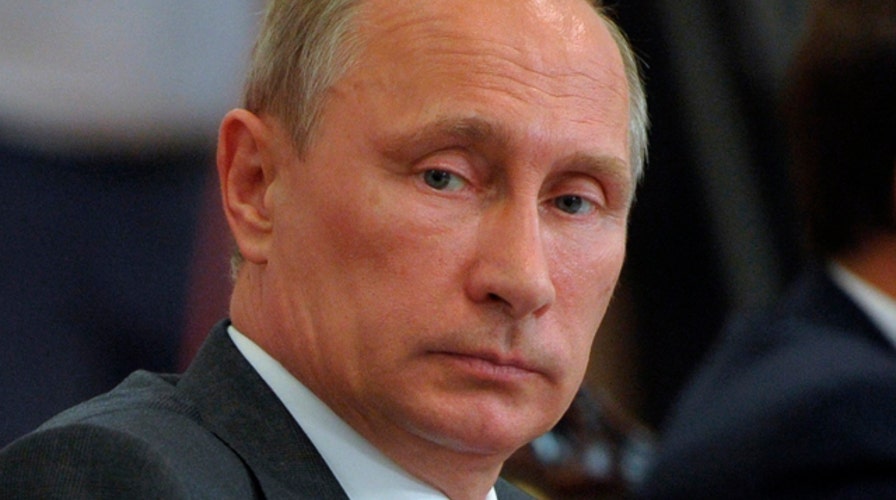Russia bans food imports from US in retaliation to sanctions
Steve Harrigan reports on Russia's 'revenge'
Russia announced Thursday that it had banned imports of meat, fish, milk and milk products and fruit and vegetables from the United States, the European Union, Australia, Canada and Norway.
Russian Prime Minister Dmitry Medvedev announced the import ban on orders from the country's president, Vladimir Putin, in response to sanctions imposed on Russia by the West over the crisis in Ukraine. The ban has been introduced for one year.
The decision shows that Putin has no intention of bowing to Western pressure over Ukraine and will instead try to strike back at the West. It also demonstrated that the Kremlin is ready to inflict damage on Russia while pursuing its course in Ukraine.
Medvedev also said that Russia is considering banning Western carriers from flying over Russia on flights to and from Asia -- a move that would significantly swell costs and increase flight time. He said the decision on that hasn't been made yet.
Russia may also introduce restrictions regarding imports of planes, navy vessels and cars, Medvedev said, but added that the government will realistically assess its own production potential.
The move follows the latest round of sanctions against Russia imposed by the EU last week, which for the first time targeted entire sectors of the Russian economy. The U.S. and the EU have accused Russia, which annexed Ukraine's Crimean Peninsula in March, of fomenting tensions in eastern Ukraine by supplying arms and expertise to a pro-Moscow insurgency, and have imposed asset freezes and loan bans on a score of individuals and companies.
Medvedev argued that the ban would give Russian farmers, who have struggled to compete with Western products, a good chance to increase their market share. But experts said that local producers will find it hard to fill the gap left by the ban, as the nation's agricultural sector has continued to suffer from poor efficiency and shortage of funds.
While the government claimed it will move quickly to replace Western imports by importing more food from Latin America, Turkey and ex-Soviet nations to avoid empty shelves and price hikes, analysts predicted that it will further speed up inflation.
Russia depends heavily on imported foodstuffs — most of it from the West — particularly in the largest and most prosperous cities such as Moscow, where imported food fills an estimated 60-70 percent of the market. Food and agricultural imports from the U.S. amounted to $1.3 billion last year, according to the U.S. Department of Agriculture, and in 2013 the EU's agricultural exports to Russia totaled 11.8 billion euros ($15.8 billion).
Medvedev made it clear that Russia hopes that the sanctions will make the West revise its policy and stop trying to pressure Russia with sanctions.
"Until the last moment we hoped that our partners would understand that sanctions only lead to a deadlock, and no one needs them, but they didn't," he said. "We hope our partners will put a pragmatic economic approach above bad policy considerations, and they will start thinking instead of trying to scare us."
The Associated Press contributed to this report.

